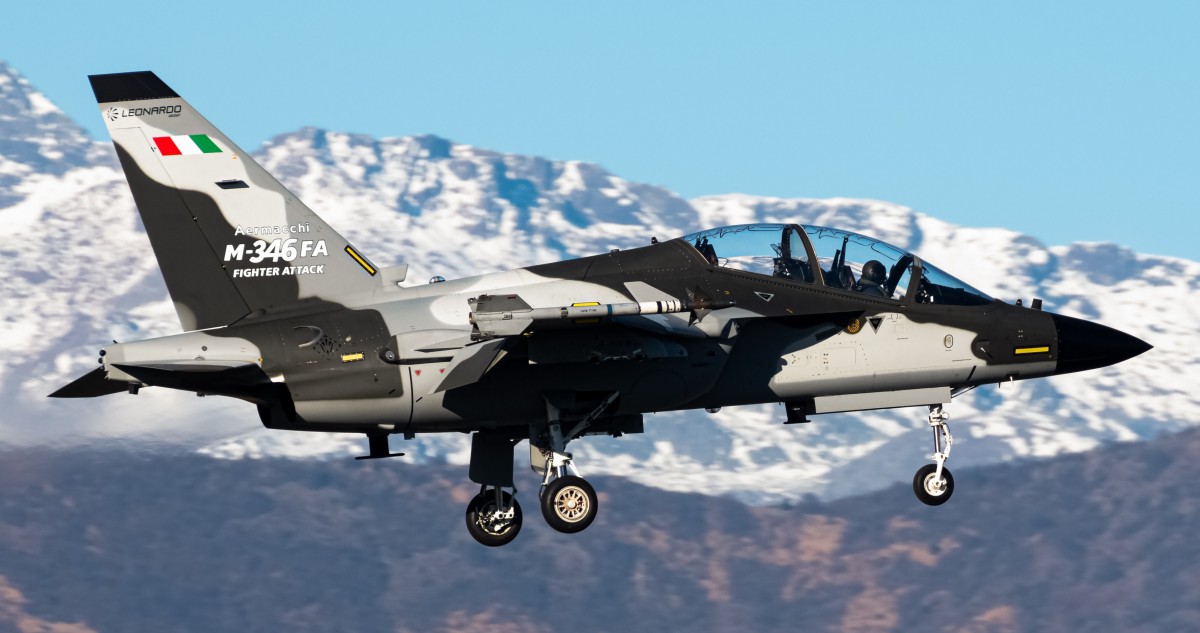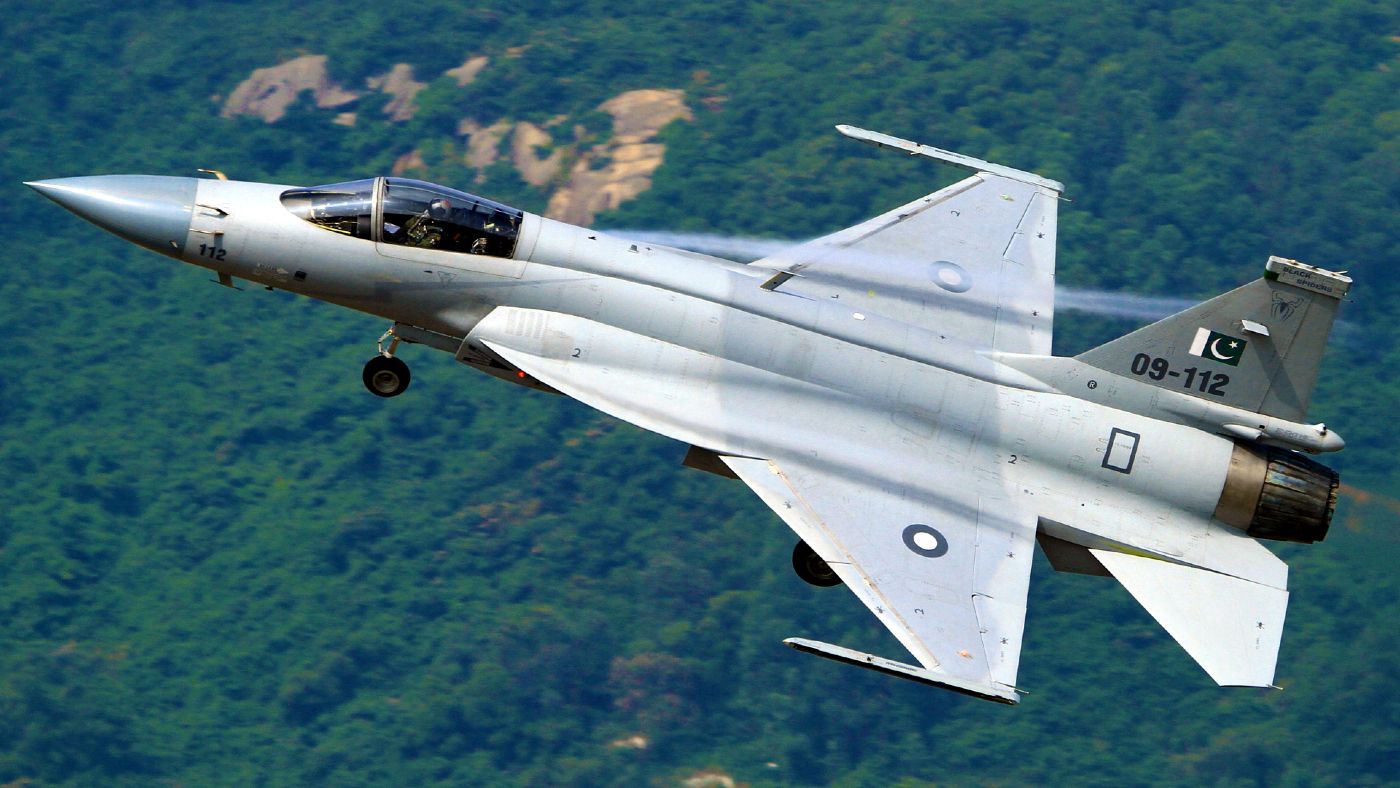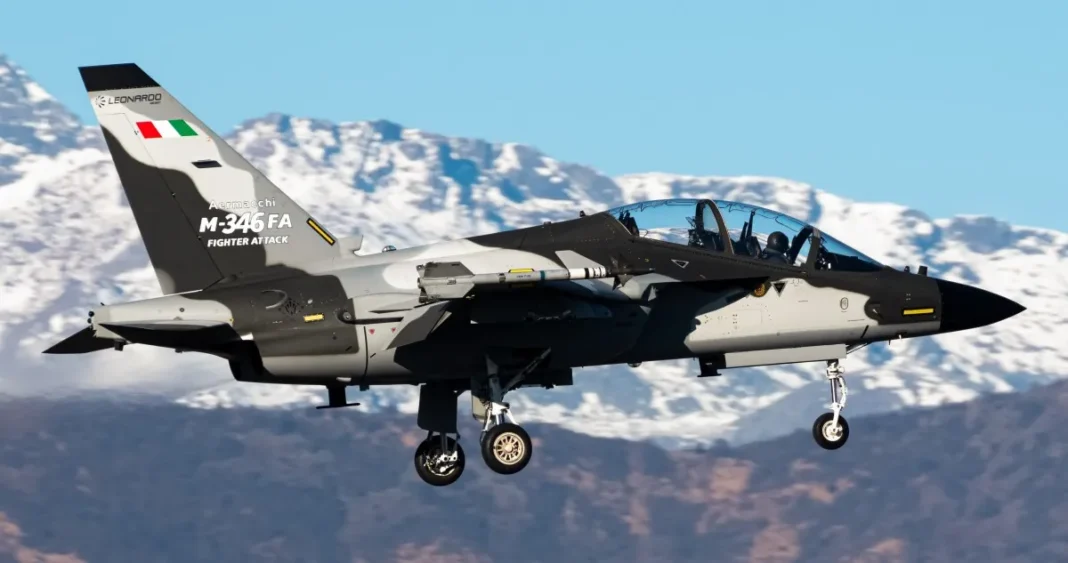Nigeria’s Air Force is gearing up to welcome the arrival of the first batch of six Italian-made M-346FA light fighter-trainer aircraft before the end of the year, marking a crucial leap in the country’s military aviation capabilities.
Manufactured by Leonardo, the M-346FA, originally designed as a twin-seater jet trainer, has been tailored for combat roles and will play a pivotal role in Nigeria’s defense strategy.
The acquisition will help Nigeria bolster its aerial capabilities in air support, air interdiction, tactical reconnaissance, and advanced pilot training.
According to statements from the Nigerian Air Force, the 24 M-346FA aircraft, ordered in total, are slated to arrive in four batches. They will be accompanied by a comprehensive 25-year logistical support package, ensuring operational efficiency and longevity.
In addition to bolstering Nigeria’s defense capabilities, the partnership with Leonardo extends beyond mere acquisition. The aircraft’s maintenance operations will be conducted in Nigeria, presenting an opportunity for Leonardo to offer maintenance services to other clients in the region, as highlighted by the Air Force.
The Sub-Saharan African nation’s intention to acquire the “light combat” version of the M-346 advanced jet trainer has been discussed for years. However, it wasn’t until May 2023 that Nigeria officially confirmed its decision to purchase the aircraft.

Before Nigeria’s procurement, the M-346FA variant had already been sold to Turkmenistan. In 2020, the Italian Senate revealed Turkmenistan’s order for four M-346FA and two M-346FT (Fighter Trainer) aircraft.
In May 2021, images surfaced showing one of the jets in Turkmen colors undergoing test flights in Italy. Later, Turkmenistan’s state media released footage in August 2021 depicting two M-346FA aircraft armed with four short-range air-to-air missiles and external fuel tanks.
Equipped with seven external hard points, the M-346FA aircraft can integrate various air-to-air and air-to-surface munitions, as well as targeting pods linked to Helmet Mounted Displays.
In a significant development, Leonardo secured a deal last year to install Nexter’s 20mm 20M621 gun pod on the jet. This pod offers improved range and precision compared to the previously supplied 12.7mm guns from Belgium’s FN Herstal.
Leonardo has a track record of success with the M-346, having sold a total of 126 trainers and fighter aircraft to various countries, including Italy, Israel, Poland, Singapore, and Qatar.
Nigeria’s Air Force Unhappy With Chinese JF-17?
Aimed at enhancing its ability to combat insurgency, particularly in the northeast where groups like Boko Haram and the Islamic State affiliate operate, Nigeria’s Air Force has been bolstering its capabilities with the procurement of new aircraft.
The country regularly employs combat aircraft to support military operations against insurgent groups and bandit militias, which have plagued Northwestern and central Nigerian states for years.
Currently, the Nigerian Air Force operates a range of fighter jets, including the JF-17, F-7Ni, A-29 Super Tucanos, and the Alpha Jet, capable of engaging both aerial and ground threats. The JF-17 Thunder, jointly developed by China and Pakistan, is Nigeria’s most advanced fighter jet.
Nigeria became the second customer of the China-Pakistan-manufactured JF-17 in 2016 by ordering three units. Since its induction into the Air Force in 2021, the aircraft has been deployed in anti-terrorism and anti-insurgency operations.
While expectations were high for further procurement of JF-17 aircraft, subsequent budget allocations did not include additional orders, prompting speculation about Nigeria’s future aircraft acquisitions.
Instead of continuing down the route of acquiring additional JF-17s, Nigeria appears to have chosen an alternative by opting to buy the M-346FA light fighter-trainer aircraft from Italy.
The change in procurement approach has sparked questions regarding the potential difficulties that Nigeria may be facing with its JF-17 fleet. The problems could likely be reminiscent of the challenges faced by Myanmar’s Air Force, which was the first customer of the JF-17.

In 2023, Myanmar’s military junta expressed dissatisfaction with the JF-17 Thunder multi-role fighter jets supplied by Pakistan, citing technical issues that rendered a significant portion of the fleet unfit for operations.
Meanwhile, recent reports suggest that the sub-Saharan African nation is in talks to procure 15 fighter jets to replace its aging Chengdu F-7NI fleet. India has emerged as a potential supplier, offering its indigenous Tejas fighter jet.
Earlier this year, India’s Minister of External Affairs, S. Jaishankar, visited Nigeria to diplomatically support India’s offer of the indigenous fighter jet, as reported by the EurAsian Times.
Whoever supplies the new aircraft to Nigeria, the acquisition of the M-346FA light fighter-trainer aircraft is expected to provide the African nation with much-needed firepower for anti-terrorist operations.
eurasiantimes.com

